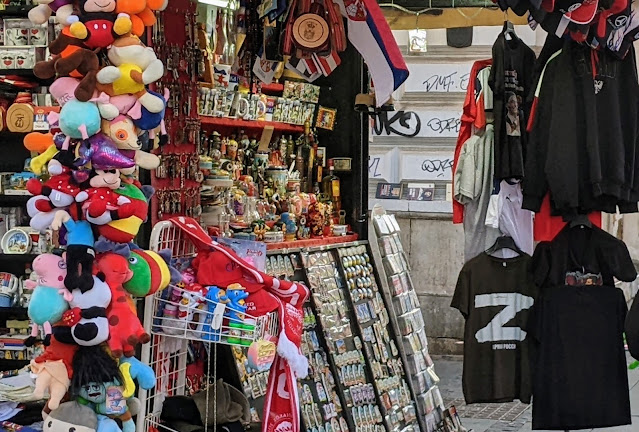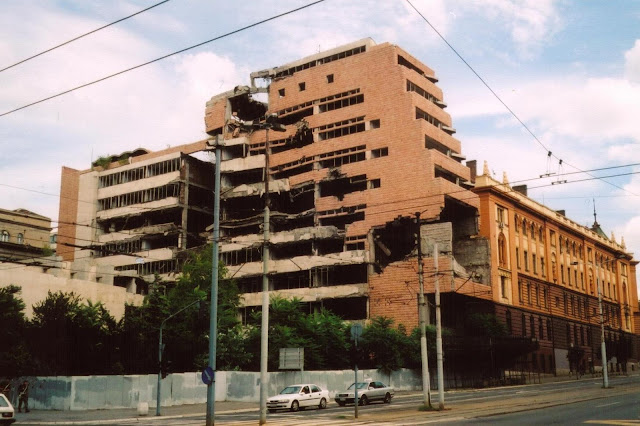In Belgrade, Serbia, on Sunday, I was surprised to see a couple of pro-Russian T-shirts for sale on the main shopping strip. One had an image of Putin; another, to the lower right in my photo below (CC BY-NC-SA 4.0), bore the iconic Russian "Z."
These shirts were exceptional, to be clear. They were the only ones of their kind that I saw, and neither was displayed prominently. Also, the "Z" shirt was for sale from a cart that was heavy on Serb patriotism and sold some of the faux-old Soviet hats and pins that can be found throughout the former SSRs.
Still, I was struck that someone had gone to the trouble to manufacture these items recently. And nothing pro-Ukraine was to be seen.
I might ought not have been surprised. My local guide told me that the 1999 NATO bombings of Yugoslavia in the Kosovo affair still sit heavily here—notwithstanding recognition of the misguided nature of leadership by once-President Slobodan Milošević, who died in prison in The Hague in 2006.
A bombed-out portion of the Serbian Ministry of Defense building stands unrepaired today in Belgrade as a deliberate reminder of the attack (below, public domain image in 2005 by Not Home).
In the historic old-fort area of Belgrade, a display of military hardware proudly includes the surface-to-air missile launcher said to have shot down a U.S. Air Force F-117 stealth aircraft in the 1999 engagement (my photo below, CC BY-NC-SA 4.0). The U.S. pilot ejected and was rescued.
In the Cold War, Belgrade was the de facto capital of the non-aligned movement, positioning Yugoslavia as a buffer between East and West. Serbia's inclinations have thus always vacillated. Evidence of waxing and waning relations with the West appears in the strong presence of western cultural institutions in the city and an eclectic mix of architectural styles in post-World War II reconstruction (including bigamous brutalism).
While there surely do remain a hard edge of NATO skepticism and persistent thread of nationalism in Serbian politics, the mood on the street, at least in progressive Belgrade, is not so disdainful. My guide said that most people in Belgrade, if asked today, would go ahead and give Kosovo its formal independence. And Al Jazeera reported 11 days ago that even "pro-government tabloids [in Serbia] have turned on Putin."
With a Serbian eye on EU membership, the country might not be able to resist the pull westward. The wounds and memories of 1999 might have to make peace at last with a new global order.



No comments:
Post a Comment